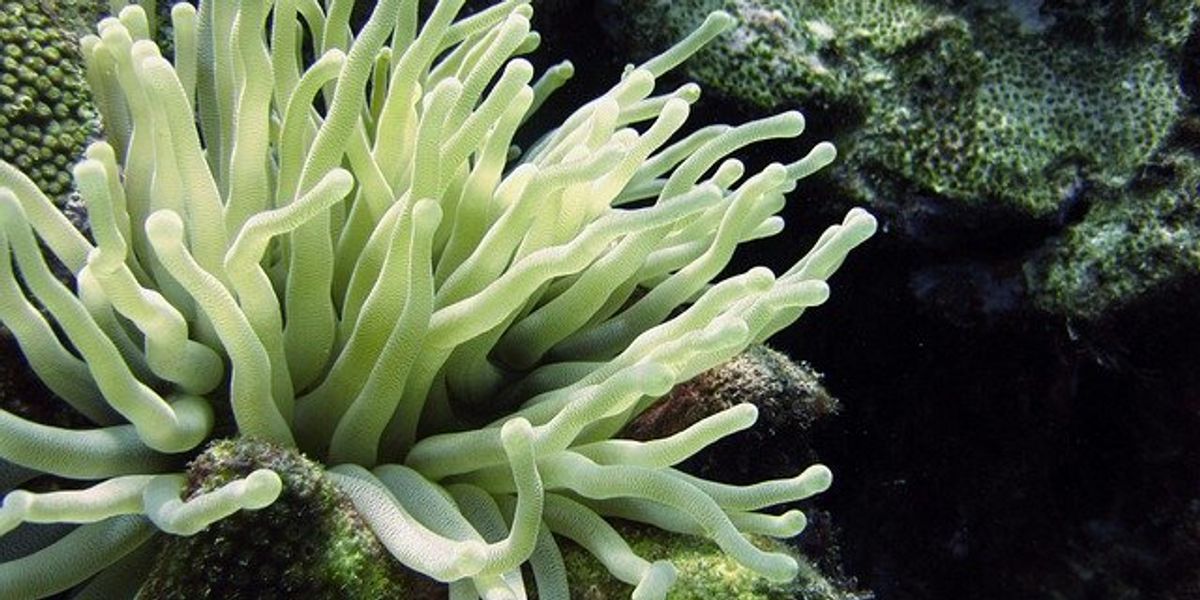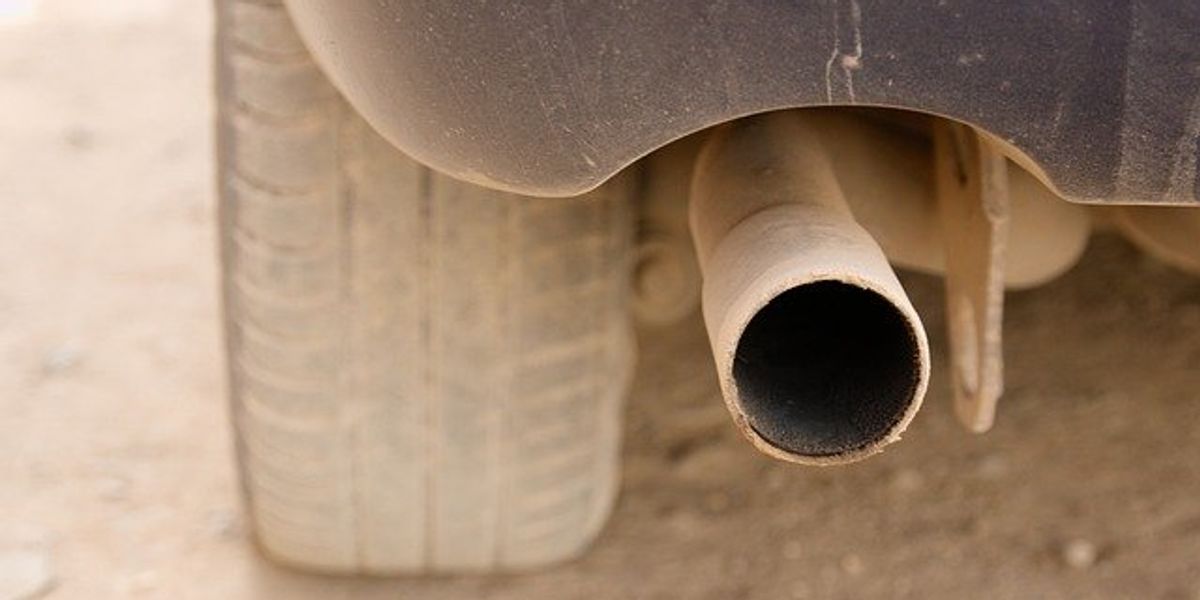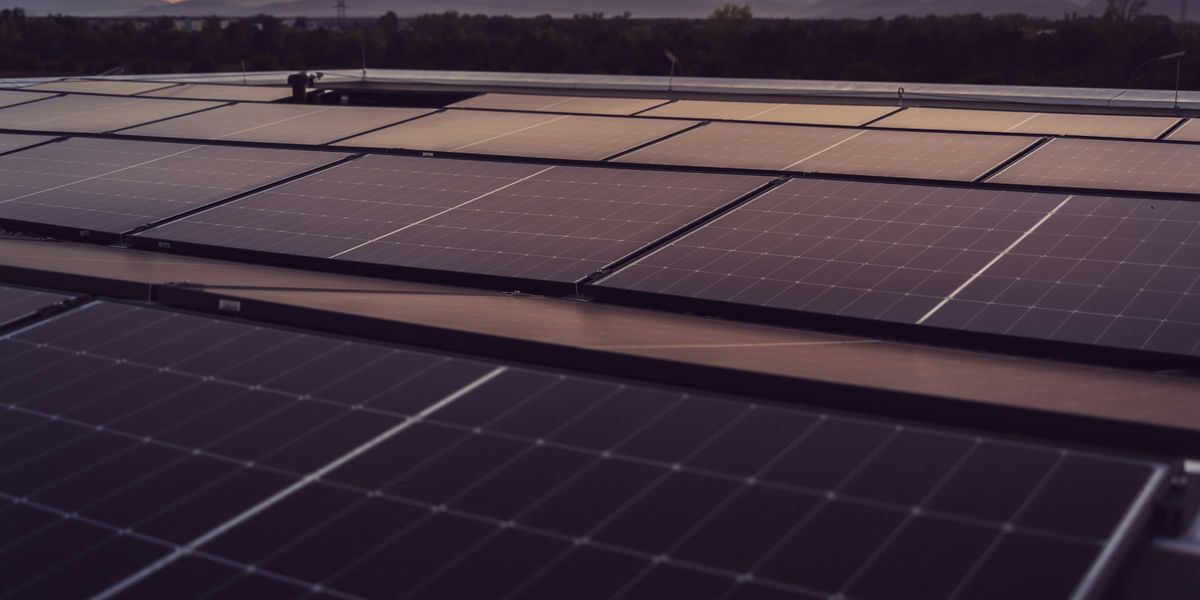environmental injustice
The Inflation Reduction Act’s green energy promise is putting Black communities at risk
A proposed tax credit for biomass energy plants could accelerate pollution in Black communities in the rural South, where forests are already being depleted for European energy demands.
In short:
- Biomass plants, which burn wood pellets for energy, emit carcinogens and other pollutants, disproportionately affecting Black and low-income communities.
- The proposed tax credit could subsidize biomass facilities, despite evidence that these plants are more harmful to the environment than coal.
- Over a million acres of forests in the rural South are being cleared for biomass production, worsening health and environmental outcomes for local residents.
Key quote:
"Ultimately, we’re killing the Earth and each other. It’s a false climate solution that leaves Black and brown communities still bearing the brunt of the damage."
— Treva Gear, Georgia activist
Why this matters:
Communities like Adel, Georgia are left with the pollution, loss of green space and the destruction of the very forests we depend on to capture carbon. It’s an ironic twist—clean energy for Europe, while Black communities in the South bear the brunt of the damage. Read more: How Europe’s wood pellet appetite worsens environmental racism in the US South.
Utah’s taxpayers foot bill for rancher’s tree-clearing plan
A wealthy Utah rancher bulldozed large swaths of forest with taxpayer support, claiming unproven environmental benefits, but experts raise doubts about his methods.
In short:
- A Utah rancher used millions in taxpayer funds to clear forests, promoting his untested tree removal method, “roller felling.”
- The rancher, Mike Siaperas, received state funds through questionable contracts and political connections, promoting his method as a wildfire and drought solution.
- Political connections helped secure millions in state funding for the rancher’s project, despite doubts about its environmental benefits.
Key quote:
“It looks like nothing more than a pet project with a thin veneer of science.”
— Ben Abbott, ecology professor at Brigham Young University.
Why this matters:
This rancher’s project, funded by over $5 million in taxpayer dollars, isn’t just a case of bad science—it’s a reflection of Utah’s broader issue with how political influence shapes so-called “green” initiatives. The claims of ecological benefits are shaky at best, and yet, thanks to powerful allies, this rancher’s proposal got the green light without much competition or scrutiny. Read more: Giving Bears Ears and Grand Staircase-Escalante the protection they deserve.
The Gulf Coast’s LNG boom is making life unlivable for some residents
When Venture Global began building one of the world’s largest liquefied natural gas hubs in Plaquemines Parish, residents found themselves battling water shortages, clogged roads, and overwhelmed emergency services.
In short:
- Residents face deteriorating water quality, traffic gridlock, and longer emergency response times since construction began.
- The plant’s construction is straining local resources, pushing some families to seek buyouts and relocate.
- Health concerns are growing as pollution increases, with some fearing their town will become the next “Cancer Alley.”
Key quote:
“I don’t care if I have to live in a cardboard box – I want out.”
— Denise Orgeron, resident
Why this matters:
Beyond Plaquemines, this is a story of environmental disruption across the Gulf Coast, where industrial expansion is reshaping both the landscape and the lives of the people who call it home. Health and well-being are on the line, and many are starting to wonder whether the price of progress is simply too high. Read more: LNG production comes with a price, Gulf Coast communities warn.
Global South demands fairness in genetic data sharing amid growing biopiracy concerns
In a world where digital genetic information is becoming a billion-dollar business, countries rich in biodiversity are demanding their fair share of the profits.
In short:
- Multinationals are extracting genetic information from diverse organisms, often without compensating the countries where these organisms are found.
- A global agreement on sharing the benefits from digital genetic codes, called digital sequencing information (DSI), is under negotiation, with tensions running high.
- Countries in the Global South argue that they are being exploited while richer nations profit from their biodiversity without sharing the wealth.
Key quote:
“There will be a Cop decision and then after that, it’ll be up to everyone to play nicely and turn it into a resource mobilisation engine for looking after biodiversity.”
— Pierre du Plessis, Namibian negotiator at Cop15
Why this matters:
With the biodiversity summit in Colombia looming, there's hope that a groundbreaking agreement might finally address this tug-of-war over genetic resources. Countries rich in biodiversity, often in the Global South, argue that they should see a slice of the profits, not just for fairness but to fund conservation efforts crucial for preserving these ecosystems. Read more: The economics of biodiversity.
Biden’s push for plastic as a coal replacement sparks environmental backlash
A Pennsylvania company’s plan to turn plastic waste into fuel for steelmaking, backed by a $182.6 million federal loan guarantee, is drawing sharp criticism from environmentalists who say the project is anything but green.
In short:
- The U.S. Department of Energy is funding a project to replace coal with plastic waste in steel production, claiming it will reduce greenhouse gas emissions.
- Environmental groups argue that burning plastic is not a viable climate solution and could worsen air pollution in disadvantaged communities.
- The Energy Department’s decision is under scrutiny as critics push for investment in cleaner, proven technologies like hydrogen.
Key quote:
“There are no steel mills in the United States that burn plastic. No one has any idea what the emissions profile of burning plastic will be.”
— Jane Williams, chair of Sierra Club’s national clean air team
Why this matters:
Burning plastic as fuel could introduce new toxic emissions, raising health concerns in communities already burdened by pollution, while potentially delaying the transition to truly clean energy alternatives. Read more: Every stage of plastic production and use is harming human health.
Appalachian groups express frustration over first $30 million in federal hydrogen hub funding
“This award represents a continued commitment to invest in a natural gas industry that has added to the pollution and health burdens in the region.”
PITTSBURGH — On July 31, the federal government announced $30 million of funding for the Appalachian Regional Clean Hydrogen Hub, or ARCH2, which plans to create hydrogen from natural gas and other sources.
ARCH2 is one of seven planned, federally funded hydrogen hubs across the country, and one of two (along with the Gulf Coast hub) that will rely primarily on fossil fuel sources rather than renewables to create hydrogen.
The $30 million award represents the first round of funding for ARCH2, with a total of $925 million available for this project over the next seven to twelve years. In total, the seven planned hydrogen hub projects are slated to receive $7 billion in federal funding.
The $30 million will be used to “solidify planning, development, and design activities around site selection, technology deployment, community benefits and engagement, labor partnerships, and workforce training,” according to the U.S. Department of Energy (DOE).
The announcement comes just weeks after Pennsylvania governor Josh Shapiro signed into law a controversial bill allowing carbon capture and storage in the state, which will be required for the development of the hydrogen hub.
The award announcement frustrated local environmental and community advocates, who say the DOE has not been transparent about the details of the project, its climate and economic benefits, or its potential to add pollution and cause health harms in environmental justice communities that are already overburdened with existing pollution sources.
“This award represents a continued commitment to invest in a natural gas industry that has added to the pollution and health burdens in the region while failing to deliver any measurable growth in jobs, income and population,” Sean O’Leary, senior researcher with the Ohio River Valley Institute, a progressive think tank, said in a statement.
Earlier this year, the Ohio River Valley Institute delivered a letter to the DOE on behalf of 54 Appalachian organizations and community groups calling for the suspension of ARCH2. The letter called on the DOE to release additional information about the projects and offer impacted communities more meaningful opportunities for engagement prior to awarding additional funds — neither of which has happened, according to the organizations that signed the letter.
“Affected communities know little about the proposed projects and their impacts,” the No False Solutions PA Coalition said in a separate statement about the award. “Nevertheless, millions of dollars are being awarded to projects that will surely impact our health and environment BEFORE affected communities have had a chance to weigh in.”
Critics of the ARCH2 project say that carbon capture and storage technology hasn’t yet proven effective as a climate solution and it remains unclear whether hydrogen energy will abate or worsen climate change.
“There’s been a lot of talk about how hydrogen will be a cleaner energy source, but that overlooks the entire picture which includes reliance on the natural gas industry, which we know pollutes and harms communities and drives climate change with methane leaks,” Talor Musil, a field manager with the Environmental Health Project, a public health nonprofit, told EHN.
After Supreme Court ruling, judges take the lead on environmental regulation
In a landmark shift, the Supreme Court's recent decision hands over the authority to regulate environmental issues from federal agencies to judges, stirring debates about expertise and regulatory power.
In short:
- The Supreme Court ended the Chevron deference, which allowed experts in federal agencies to make regulatory decisions.
- Senate Democrats introduced a bill to restore agency power, emphasizing worker safety and environmental protections.
- Legal experts warn that judges' lack of scientific expertise could lead to flawed decisions on complex environmental issues.
Key quote:
“Air emissions, federal lands, federal lands offshore, PFAS cases, perchlorate cases, all of those, I think, might be in jeopardy."
— David Vladeck, professor at Georgetown University Law Center
Why this matters:
The Supreme Court's latest ruling has shifted the balance of power from scientists to judges when it comes to environmental regulation. This game-changing decision means that instead of the nation's top scientists calling the shots on policies to protect our air, water, and health, it's now up to the judiciary to make the big calls. Read more: Supreme Court undoing 50 years’ worth of environmental progress.



















